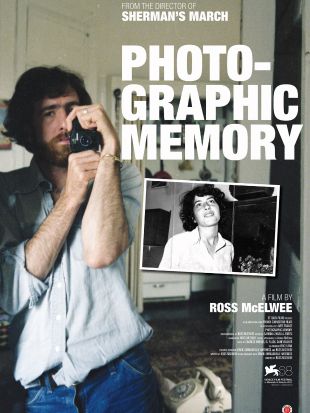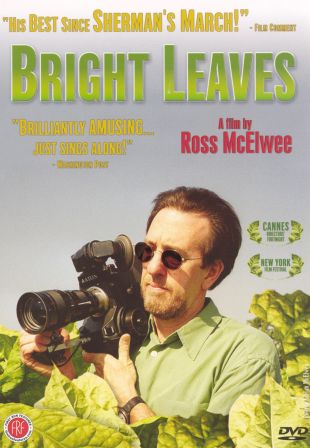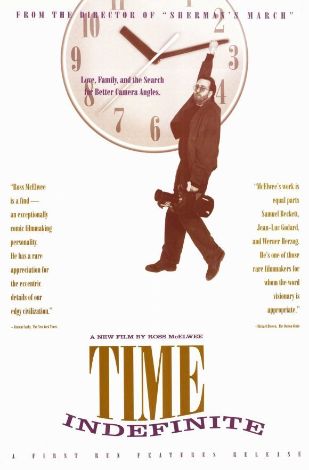Ross McElwee took the basic precepts of cinéma vérité and personalized them to create a unique form of documentary making that earned him much acclaim and several awards. His work is almost always autobiographical and he often films himself at some of life's most personal and awkward moments, though usually within the bounds of decency and good taste. Though there are many who feel his documentaries are too slow-paced, detailed, or abstract to be appreciated, there are an equal number of fans who love slowly being drawn more deeply into his world. The three feature films most representative of his style are also his most famous: Sherman's March: A Meditation on the Possibility of Romantic Love in the South During an Era of Nuclear Weapons Proliferation (more simply known as Sherman's March), Time Indefinite, and Backyard.
A native of Charlotte, NC, McElwee earned his bachelor's degree from Brown University and, a few years later, earned a master's in filmmaking from the Massachusetts Institute of Technology, where he studied under Richard Leacock, one of the pioneers of the cinéma vérité movement. Between degrees, McElwee lived in Brittany, where he attempted and failed at various money-making schemes. He next lived in Paris; it was there, in the midst of trying to discern his niche in life, that he attended a showing of Orson Welles' Touch of Evil. The powerful drama inspired him to become a filmmaker. While growing up, he had wanted to become a writer and a photographer. During his studies at MIT, McElwee made a few short films, notably Charleen (1978) and the medium-length documentary Space Coast (1979). The former looked at the life of one of his most interesting friends, a charismatic school teacher. As with several other important people and family members, Charleen would put in regular appearances in his films, thereby creating an unforgettable portrait of the highs and lows of her life. The latter film examined the lives of three eccentric families who lived on Cape Canaveral in the late '70s. Backyard was filmed at his family home, as they carefully prepared to celebrate McElwee's brother's imminent departure to a prestigious medical school, and offers a look at a dying way of Southern life.
In March 1981, McElwee obtained a special grant and began a documentary travelogue that was originally to trace the route of the famed Yankee General across the South, but just before filming began, his girlfriend broke up with him. Devastated, he returned to his family home to regroup. It was his sister who suggested he use his camera to help him meet girls. He took it a few steps further and, over a five-month period, indeed retraced General Sherman's steps, but along the way, filmed his encounters with a half-dozen women, some of them old girlfriends and some of them strangers. The result was a funny, bittersweet study of romantic rejection punctuated by McElwee's periodic musings, spoken directly to the camera while he lay alone in various low-rent motels. Sherman's March received wide theatrical distribution and was one of the most popular documentaries ever made. Time Indefinite is almost a sequel to it and represents a more mature and structured film. It is a highly personal chronicle of McElwee's engagement and marriage to Marilyn Levine. In many ways, it marks McElwee's transition into adulthood, with all its responsibility. It is also a profound rumination on life and death, both occuring during the course of the film.
In addition to the aforementioned personal themes, McElwee's work concerns itself with larger issues, too. For example, one undercurrent running strongly through Sherman's March is the fear and the threat of nuclear war that seems to subconsciously affect relationships between men and women. His Something to Do With the Wall (1991) looks at the lives of those living in the shadow of the Berlin Wall. In the late '90s, he was idly watching the evening news when he came upon the idea of documenting the long-term effects upon a few people who survived natural disasters and then described their experiences on television. The result was the provocative Six O'Clock News (1997).


